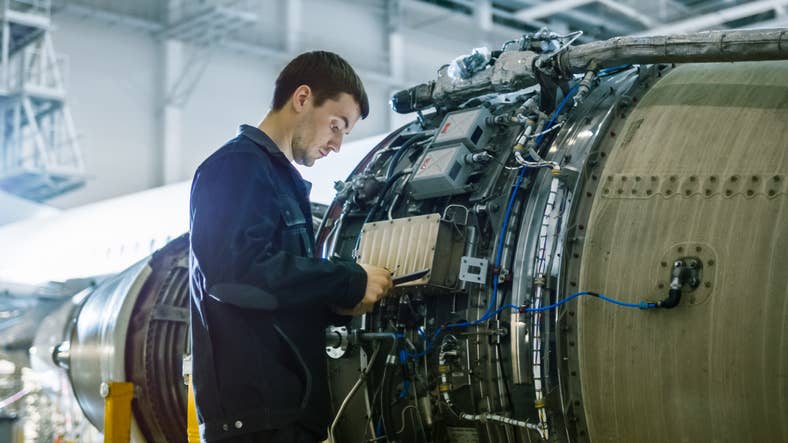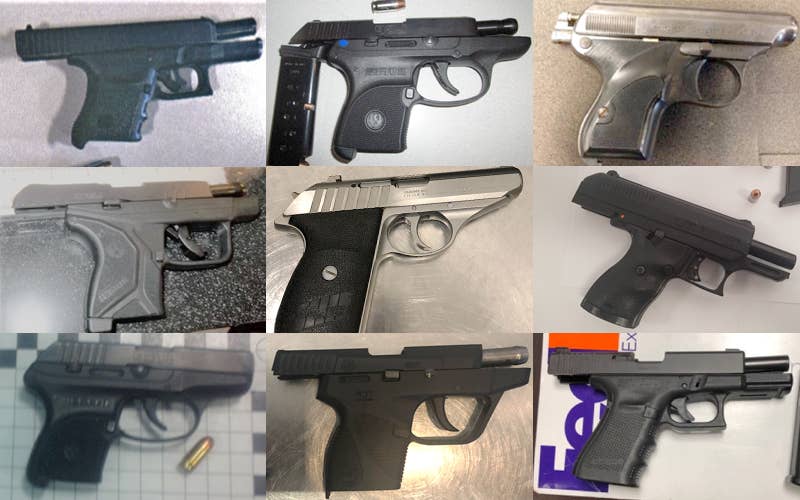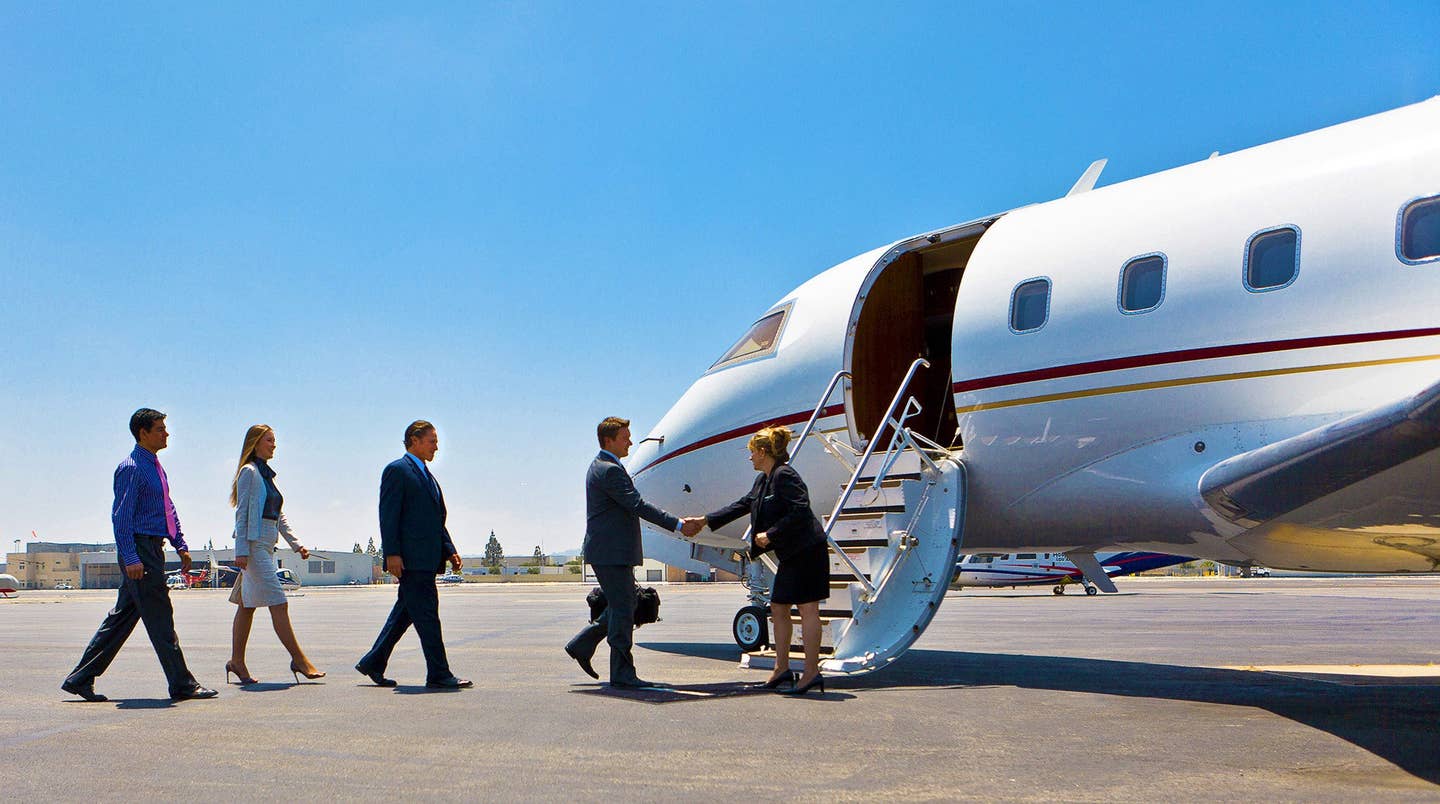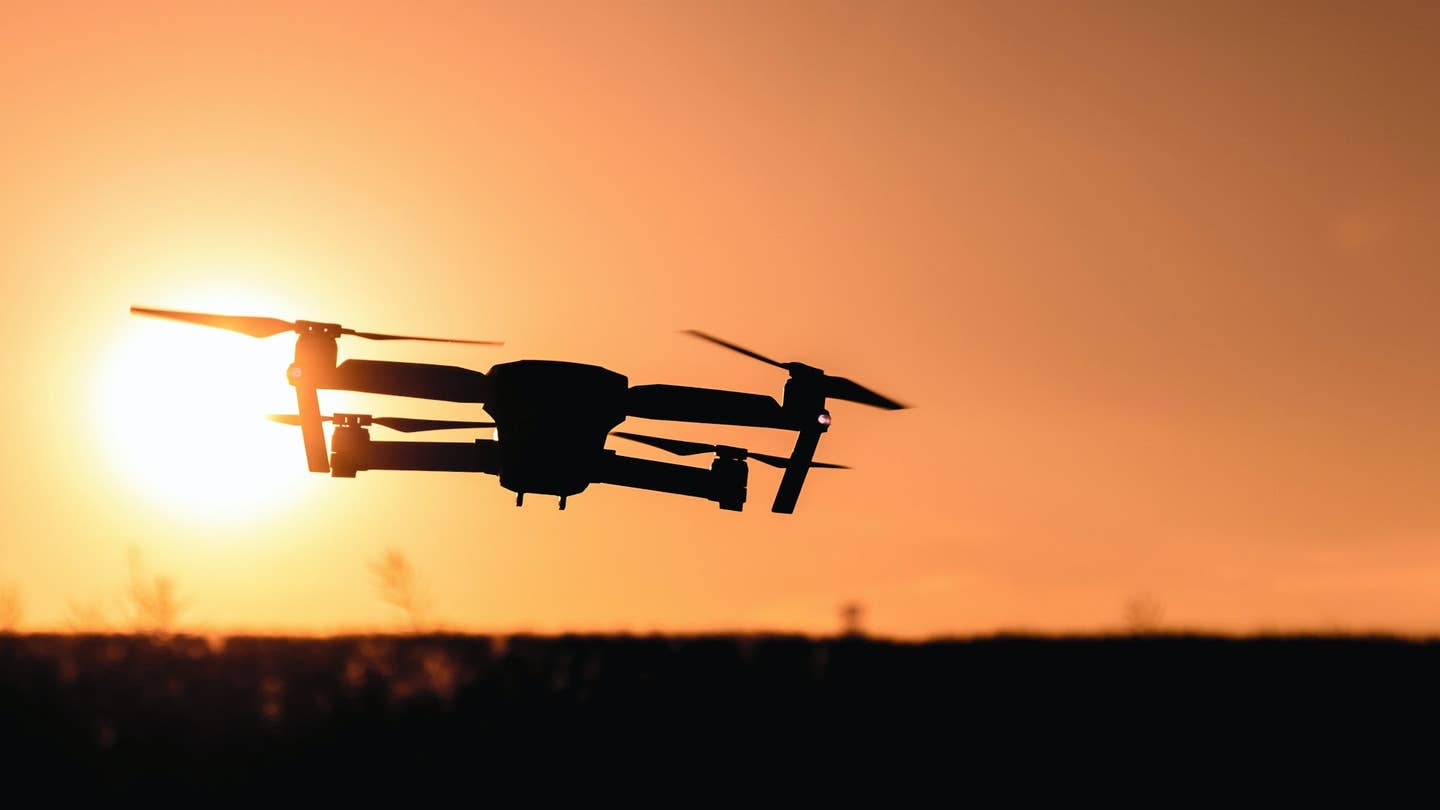
Aircraft mechanics are responsible for the safety of passengers and keeping planes in the sky. [Credit: iStock]
When most think of aviation, the first thing that usually comes to mind is a pilot. Well, behind the scenes, the person who is responsible for the critical safety measures to keep pilots flying is the aircraft mechanic. Inspections, testing, repairs, and management of the hangar are all important duties performed by the aircraft mechanic. Not only is the demand increasing for aircraft mechanics, the earning potential can exceed six figures. Read on to learn what an aircraft mechanic does, how to become an aircraft mechanic, and what it takes to earn certifications to increase income opportunities.
What Is an Aircraft Mechanic?
An aircraft mechanic is someone who is highly trained and federally certified to perform maintenance on aircraft carrying passengers and cargo. Also referred to as an aviation technician, aircraft mechanics are responsible for the management, supervision, maintenance, repairs and inspections for the aircraft. Aircraft mechanics who hold airframe and powerplant certification (A&P) are also known as airframe and powerplant mechanics. This certification is required for most positions and is a rigorous training process due to the critical importance of mechanical safety in aviation.
What Does an Aircraft Mechanic Do?
An aircraft mechanic supervises and manages the maintenance, repairs, and inspections of aircraft. The aircraft mechanic is also responsible for keeping meticulous records and log books, required by the FAA, as well as, ensuring the organization and inventory of all tools and parts for the hangar.
Pros & Cons of Being an Aircraft Mechanic
Pros:
- The aviation industry is expected to experience continued growth into 2030
- Aircraft Mechanics can earn an average of $85,000 per year
- Develop specialized skills
- Achieve certifications
- Regularly test and refresh skills
Cons:
- Physically demanding work
- May be required to live near large cities
- Fast-paced and high pressure environments
- Complex engines and systems require routine study
5 Steps To Become an Aircraft Mechanic
From eligibility requirements and education to specialized skills and certifications, here are the steps towards becoming an aircraft mechanic.
Step 1: Make Sure You’re Eligible
To be eligible to become an aircraft mechanic, you must be at least 18 years of age, and have the ability to read, write, speak, and understand English proficiently. You must also be able to pass the required tests within 24 months. Lastly, you must meet all requirements of knowledge, skills, and experience necessary for at least one of the two ratings. Either (A) Airframe, (P) Powerplant or both (A&P) Airframe and Powerplant.
Step 2: Select Your Specialty
There are multiple types of aircraft mechanics who specialize in specific areas of the complex aviation maintenance industry.
- Aircraft Mechanics - typically begin as entry level service technician roles and are overseen by a supervisor. Perform routine repairs and inspections, while learning from experienced mechanics. After gaining experience, mechanics may become supervisors and ultimately maintenance directors.
- Airframe and Powerplant (A&P) Mechanics - Certified mechanics who typically supervise technicians and manage the maintenance operations.
- Avionics Technicians - specialize in navigation equipment, radios, autopilot systems, entertainment systems, and cables in the aircraft.
- Inspection Authorized (IA) Mechanics - Usually maintenance directors, conduct annual inspections of aircraft required by the FAA.
- Aviation Investigator - The National Transportation Safety Board (NTSB) has roles for aviation inspectors who investigate the scene of an aviation incident to determine the cause and effects
Step 3: Choose Your Education Route
A college degree is not required to become an aircraft mechanic, but most training programs are at least 18 months of technical training at an aircraft maintenance technician school (AMTS) approved by the Federal Aviation Administration (FAA). Course work to learn systems, hands-on training, and successful exams are required to complete an aircraft mechanic program. Bachelor’s and Associate’s degree programs are available and help increase employment opportunities and earning potential. The majority of aircraft mechanics or aviation technicians have associate degrees.
Step 4: OR Gain Experience
Some aircraft mechanics have a high school diploma or GED and choose to gain experience through apprenticeship opportunities and on-the-job training. Entry-level aircraft mechanic jobs requiring no experience are available. This allows you to perform routine maintenance, inspect systems, and gain experience while learning from experienced aircraft mechanics. Communication, attention to detail, and the ability to follow specific, detailed, and complex instructions are required skills to be successful in an entry level role. Employers for entry-level aircraft mechanic jobs will likely require the completion of an Airframe and Powerplant (A&P) certificate and/or additional coursework.
Step 5: Get Certified by the FAA
To gain certification from the FAA, you will need to be 18 years of age, possess excellent oral and written English communication skills, and attend an FAA approved AMTS, OR have 30 or more months of airframe and powerplant experience. You must also pass required written, oral, and practical examinations within 24 months to complete your A&P Certification.
Aircraft Mechanics Keep People Safe and Planes In The Sky
Aircraft mechanics are in high demand and play a critical role in the aviation industry. This demand creates opportunities for excellent pay, benefits, and training in the exciting field of aviation. Whether you attend an Aircraft Maintenance Technical School (AMTS) or gain on-the-job training through an entry level position, you can begin your career as an aircraft mechanic today! Subscribe to FLYING Magazine to stay informed of the latest news and information as you navigate your journey into the exciting world of aviation mechanics.
FAQ
Do Aircraft Mechanics Fly?
Aircraft mechanics are not licensed to fly aircraft unless they obtain the same private pilot’s license (PPL) that an aircraft pilot is required to have to fly an aircraft.
What Is an Aircraft Mechanics Salary?
The average annual salary for aircraft mechanics was $67,840 as of May 2020. The bottom 10 percent earned lower than $41,660, and the top 10 percent earned over $100,680.
How Long Does It Take To Become an Aircraft Mechanic?
Aircraft mechanic training courses typically take 18-24 months to complete. Entry level aircraft mechanic jobs are available, but on-the-job training routes take a minimum of 30 months to gain the necessary experience to obtain an A&P certification from the FAA.
How Much Does It Cost To Go To Aircraft Mechanic School?
Aircraft mechanic school will likely cost between $20,000 and $50,000 for school depending on which school, location, and whether you are seeking an associate’s or bachelor’s degree.
Is It Worth Becoming An Aircraft Mechanic?
Yes -- A career as an aircraft mechanic is in high demand and can be lucrative if the right training and certifications are achieved. The average salary for an aircraft mechanic is over $67,000 per year with an earning potential exceeding six figures and the training can be as little as 18 months.

Subscribe to Our Newsletter
Get the latest FLYING stories delivered directly to your inbox






